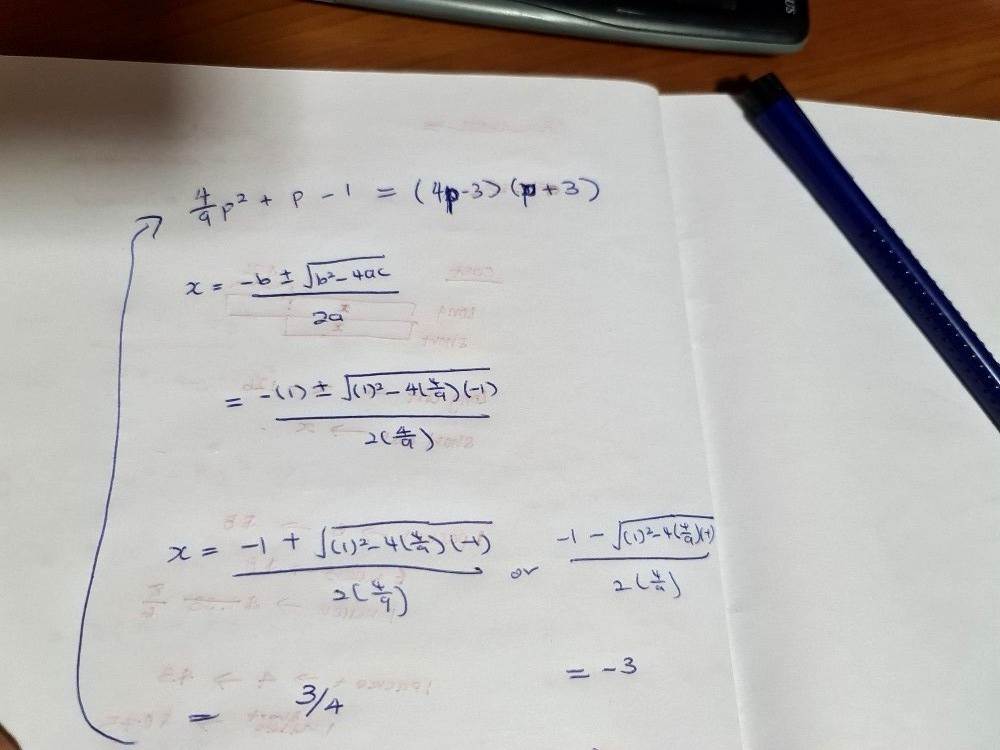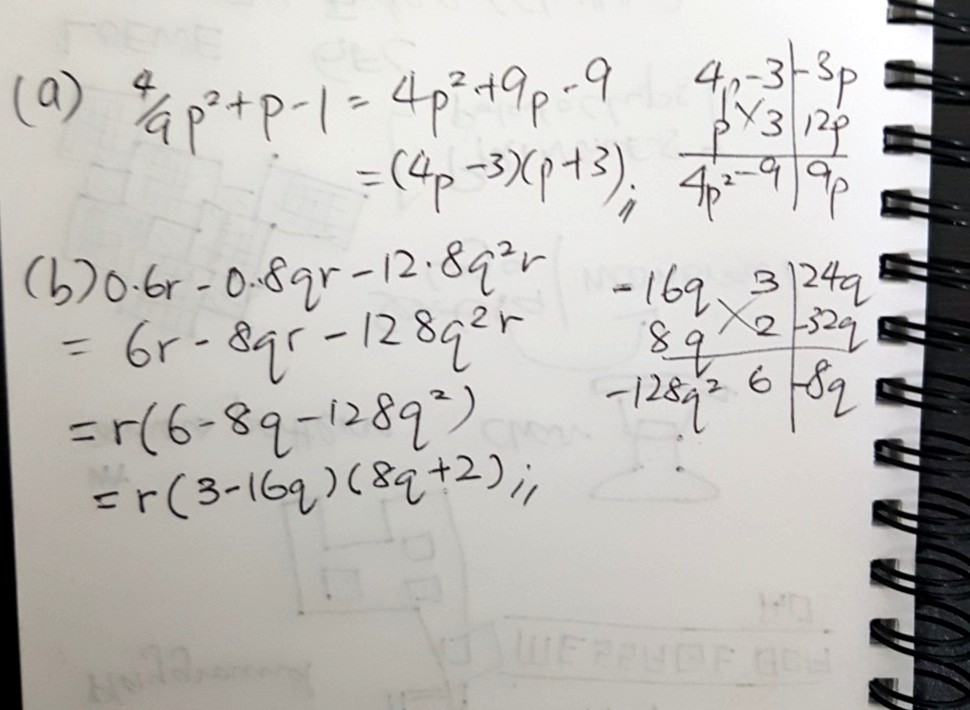Ask Singapore Homework?
Upload a photo of a Singapore homework and someone will email you the solution for free.

See 3 Answers
done
1 Upvotes
clear 0 Downvotes
Using the quad formula which is x=-b there line u see, complete b . Both same formula
How i get 4p-3 from 3/4
(P-3/4)(p+3) is same as (4p-3)(p+3)
And 4/9p^2 + p - 1 = 4p^2 +9p -9 (9 is multiplied)
How i get 4p-3 from 3/4
(P-3/4)(p+3) is same as (4p-3)(p+3)
And 4/9p^2 + p - 1 = 4p^2 +9p -9 (9 is multiplied)
Date Posted:
4 years ago
(a) Factorize by (1/9) first so your constants are whole
(1/9)(4p^2 + 9p - 9)
= (1/9)(4p-3)(p+3)
(b) Factorize step by step. Start with (1/5) first to make all the constants whole; then factorize common terms (in this case, its r), then factorize the quadratic expression of q terms.
(1/5)(3r - 4qr - 64q^2r)
= (r/5)(3 - 4q - 64q^2)
= (r/5)(-16q+3)(4q+1)
(1/9)(4p^2 + 9p - 9)
= (1/9)(4p-3)(p+3)
(b) Factorize step by step. Start with (1/5) first to make all the constants whole; then factorize common terms (in this case, its r), then factorize the quadratic expression of q terms.
(1/5)(3r - 4qr - 64q^2r)
= (r/5)(3 - 4q - 64q^2)
= (r/5)(-16q+3)(4q+1)
Pardon me Mr Cheng, do note that for general expressions, you shouldn't multiply a constant to get rid of the fractions (unless they were equations).
If you expand both your answers, they will not give the original expressions . Kindly take note eh, thanks.
If you expand both your answers, they will not give the original expressions . Kindly take note eh, thanks.
Well noted Mr Ang. I will take note of this. Appreciate your kind advice.








1. Answer missed out the (1/9) constant
2. They may not award method marks since the question requested for factorized expressions (i.e. there's no equal sign to begin with, there shouldn't be a reason to include equations as part of the answer).
I don't disagree that the method works; it can, just not what the question was asking for?
Second point - your factorised form, when expanded, will not give the original expression as what Mr Soon had mentioned. Kindly take note eh, thanks.